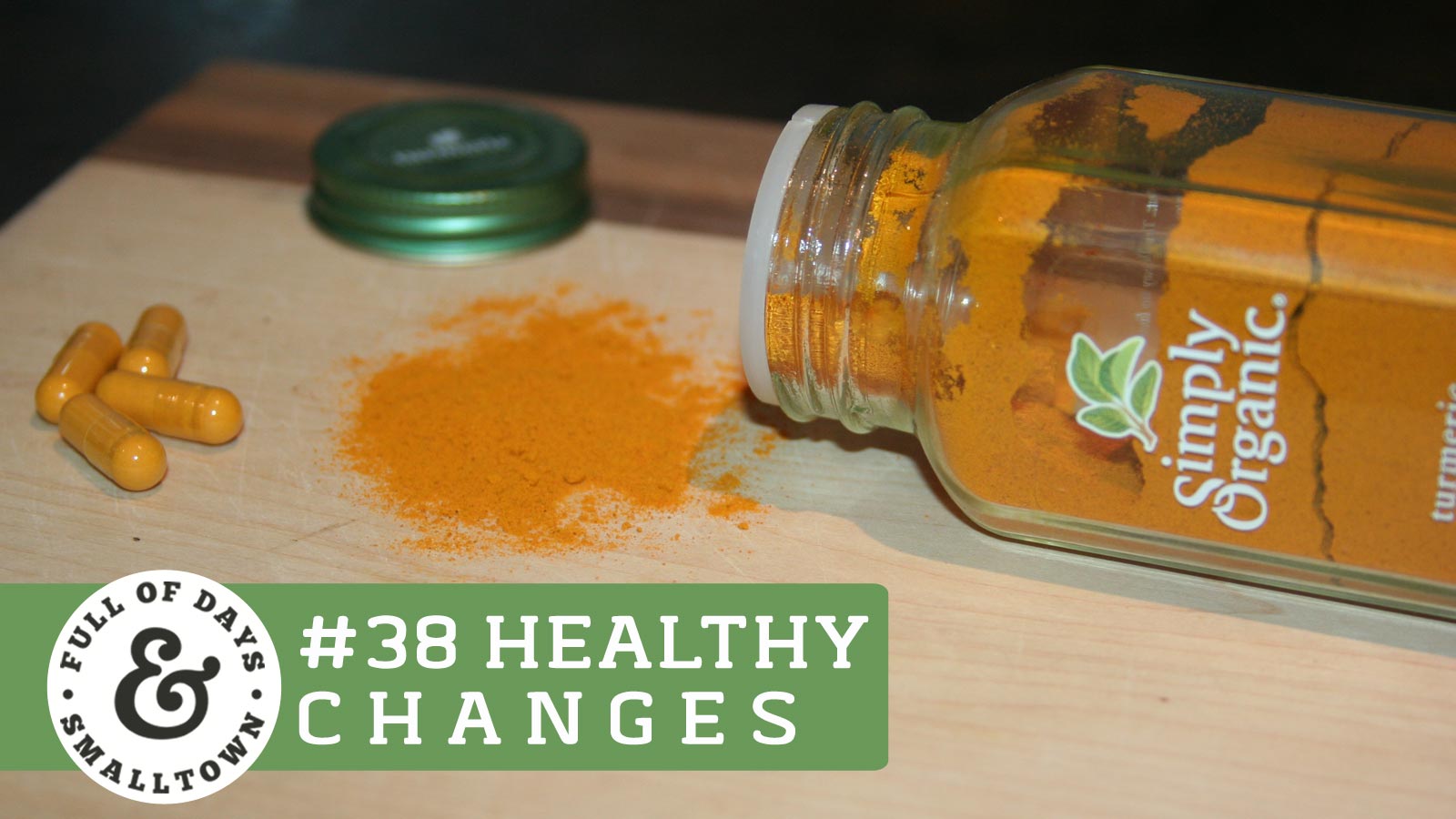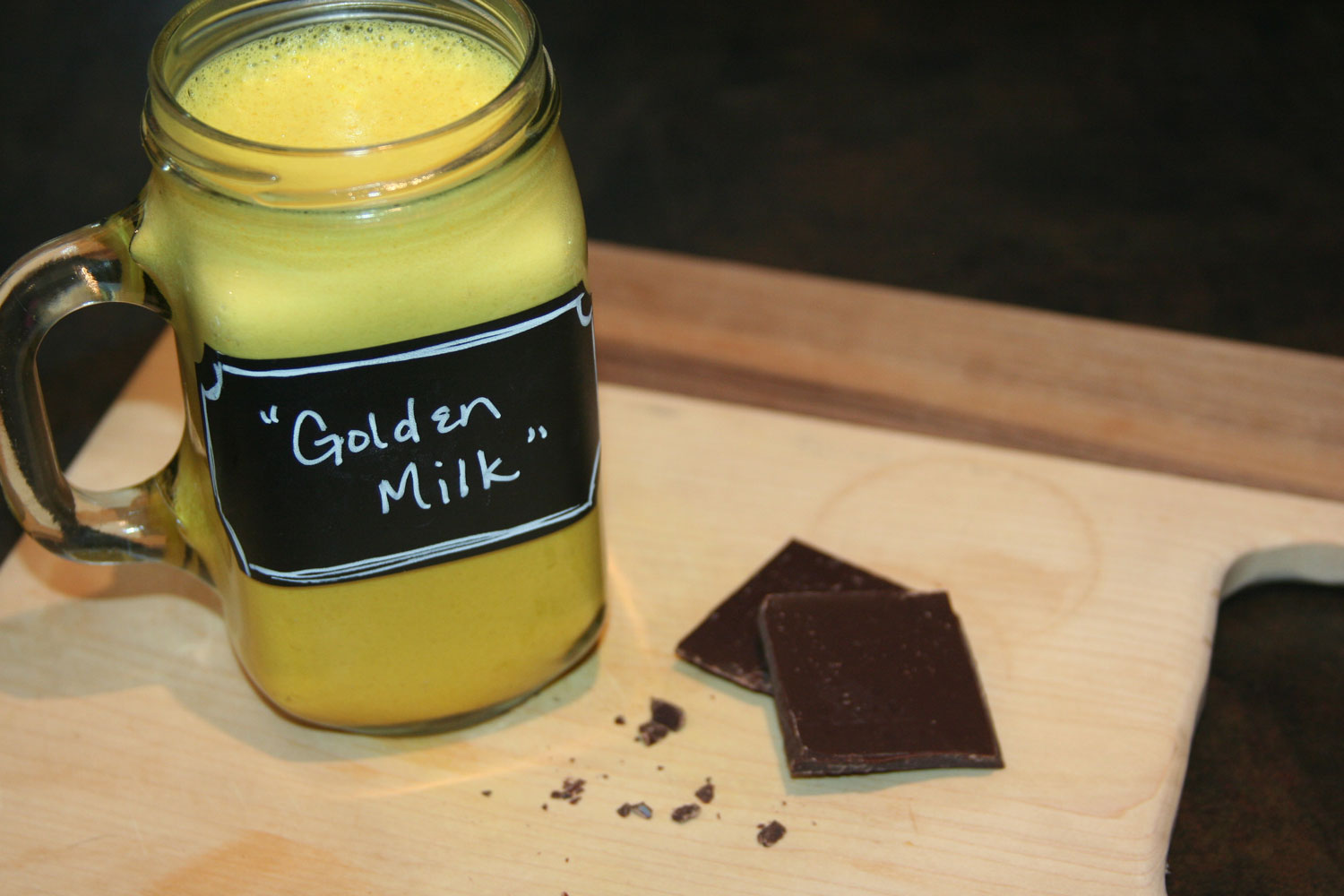
s we’ve been looking at different ways to fight inflammation and why inflammation can be so dangerous, it’s important to keep a few things in mind to avoid confusion or disappointment when trying to alleviate these issues in the body:
- We each have unique genetic and biological makeup. Because of this, different methods for treating inflammation will work differently for each of us.
- Give each method of reducing inflammation a fighting chance. Inflammation doesn’t go away overnight, and oftentimes doesn’t go away with one “dose”. There are no quick fixes when it comes to reducing or eliminating inflammation, so trying turmeric one time and saying it didn’t help with your inflammation isn’t really giving the supplement time to work. Stick with it!
- Understand that turmeric alone will not cure chronic inflammation. A healthy diet and lifestyle, free of excessive chemical exposure, are critical when trying to fight inflammation.
- Know your body. This includes both listening to the cues your body gives you while using a new supplement, as well as knowing what other supplements/medicines you’re taking to understand any possible side-effects (See “Side-effects of Turmeric” below for more information).
As I’ve shared before, inflammation is a necessary action our body takes in response to threats of illness or disease. However, an inflammatory response when no physical threat is present can be very dangerous and harmful. Excess inflammation is a condition linked to asthma, allergies, autoimmune disease, heart disease, cancer and other diseases, depending on which organs the inflammation is impacting. Irritation to tissues can also occur, leading to pain, redness, swelling and heat. These are symptoms commonly experienced by many osteoarthritis patients. (Source)
Because constant inflammation can cause serious harm, we’ve been discussing ways to help alleviate this inflammation. Turmeric has been used for over 3,000 years in Ayurvedic Medicine (an ancient holistic system of medicine and natural healing from India, based on preventive medicine) to help treat and prevent the symptoms of inflammation. It’s also frequently used in many Indian cuisines such as curry dishes. Curcumin is what gives turmeric its deep yellow color and is the reason it’s often used in mustard and some cheeses to give it that yellow/orange color.
What is Curcumin?
Curcumin is a powerful antioxidant which helps the body eliminate free radicals and is the component within turmeric that gives it its anti-inflammatory properties. Free radicals can damage cell membranes, tamper with DNA and can even kill healthy cells. Studies have also shown that curcumin lowers the levels of two enzymes in the body that cause inflammation, as well as stops platelets from clumping together to form blood clots. (Source)
Studies have shown that curcumin works by “inserting itself into your cells’ membranes where it changes the physical properties of the membrane itself, making it more orderly.” (Dr. Mercola) To get super geeky and scientific, check out this article from the U.S. National Library of Medicine, but I warn you, your head will spin! The lead researcher of this study said, once curcumin enters the cell “The membrane goes from being crazy and floppy to being more disciplined and ordered, so that information that flows through it can be controlled.”
What Else Does Turmeric Help?
According to this article from the University of Maryland Medical Center, turmeric can help with the following conditions:
- Indigestion (or Dyspepsia) – Because curcumin stimulates the gallbladder to produce bile, some believe it helps improve digestion. But use caution when using turmeric and avoid using acid-reducing medications such as those used for heartburn and indigestion.
- Ulcerative colitis – Ulcerative colitis is a chronic disease of the digestive tract where symptoms tend to come and go. Turmeric has shown favorable results in studies to help those with this disease stay in remission.
- Osteoarthritis – As mentioned above, turmeric (curcumin) can reduce inflammation, which may help improve symptoms common to those suffering from osteoarthritis.
- Heart Disease – Although not yet tested thoroughly enough to state as fact, early research shows that turmeric may help prevent atherosclerosis (the buildup of plaque that can block arteries and lead to heart attack or stroke).
- Cancer – Early results of studies being done on the potential cancer-fighting link within curcumin show that curcumin inhibits the transformation of cells from normal to tumor, as well as inhibits the proliferation of tumor cells already existing. Helps your body destroy mutated cancer cells so they cannot spread throughout your body. Enhances liver function. Inhibits the synthesis of a protein thought to be instrumental in tumor formation. And prevents the development of additional blood supply necessary for cancer cell growth. (Source)
- Bacterial and Viral Infections – There is evidence that turmeric may kill bacteria and viruses. Is it possible using turmeric preventatively could help you avoid getting sick during cold and flu season? We like to drink Golden Milk in the early Fall to avoid those “back to school” germs that always seem to hit.
- Neurodegenerative Conditions – “Tumeric’s powerful antioxidant, anti-inflammatory, and circulatory effects may help prevent and treat neurodegenerative diseases, including Alzheimer disease, Parkinson disease, multiple sclerosis, and other conditions.” (Source)
Please Use Caution!!!
As always, it’s my recommendation to do proper research and work with a healthcare provider when utilizing alternative methods for healing. With that being said, if you using any of the following medications, you should not use turmeric or curcumin in medicinal forms without first talking to your healthcare provider.
- Blood thinning medications – Especially if you’re planning on having surgery. Turmeric may strengthen the effects of these drugs…this includes aspririn!
- Stomach Acid reducing drugs – Turmeric may increase the production of stomach acid, interfering with the action of these drugs.
- Diabetes Medications – Because Turmeric may naturally help lower blood sugar, it may have a hypoglycemic effect (low blood sugar) on those already taking diabetic medications.
- (Source)
Headache Relief
When I first learned of the benefits of turmeric, I read that it can help alleviate headaches. In an effort to rid my home of OTC medications such as Tylenol and Advil, I bought a bottle of encapsulated turmeric and began taking one capsule at the first sign of a headache. Low and behold, it actually worked! I now use a combination of essential oils and turmeric when a nasty headache rears its ugly head.
Preventative “Golden Milk”
To be proactive against inflammation, I like to enjoy Golden Milk. There are many different recipes online, and Mr. Google can help you find them…just ask! My favorite way to enjoy turmeric (which has a noticeably woody taste) is in a Golden Milk Chai Tea. This will warm you from the inside out, and you can feel good about sipping on this creamy treat as it’s full of healthy antioxidants, spicy herbs and healthy fats to help keep you in tip-top health.
Ingredients
1 1/2 cups Almond, Coconut or Raw Milk
1 tsp. Turmeric Powder
1/4 tsp. Ground Ginger
1/4-1/2 tsp. Ground Cinnamon
1/8-1/4 tsp. Ground Nutmeg
1 drop Cardamom Essential Oil
or a pinch of Ground Cardamom
1/2 Tbs. Coconut Oil
Dash of Sea Salt
Dash of Black Pepper
10-20 drops Vanilla Stevia
or 1 Tbs. Raw Honey and 1/8 tsp. Vanilla Extract
To Make: Please use all organic spices as non-organic spices have been irradiated and lost their nutritional properties. This recipe serves one.
Step 1: Bring milk of choice to a near boil in a pot on the stove over medium heat.
Step 2: While milk is heating, combine turmeric, ginger, cinnamon, nutmeg, cardamom, salt and pepper in a small bowl.
Step 3: Quickly whisk in seasonings and simmer for 3-5 minutes.
Step 4: Add Golden Milk to a blender and add in coconut oil, blend for 30 seconds or until frothy.
Step 5: Stir in vanilla stevia or raw honey and vanilla extract. Taste and adjust to your preference.
Sip and enjoy this warm and creamy drink, knowing your body will truly thank you for this earthy and somewhat spicy treat!




I used to down my turmeric with hot water, lemon, and some honey. This treat sounds so much better!! YUM
So much better! Turmeric definitely has a “woody” taste, but it blends nicely with the chai flavors of this drink. Beware! Turmeric can stain your countertops/grout easily! Use caution when stirring!